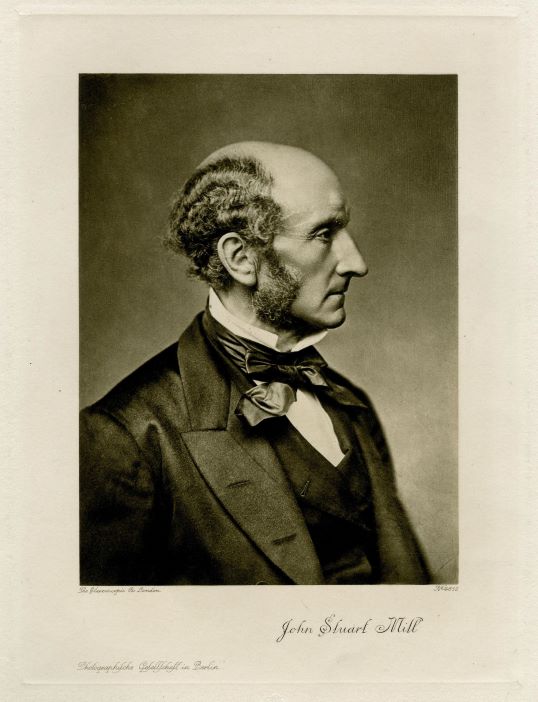Liberty Matters
The Jevonian Revolution in Economics
 Professor Kates has emphatically and repeatedly shown us how Mill and his contemporaries viewed the world, seeing it whole, constantly in motion, changing and shifting. Rightly so. Two questions arise: First, what happened -- why isn’t this how economists regard the world today, and does it matter? And second, does Mill have anything to teach us today?
Professor Kates has emphatically and repeatedly shown us how Mill and his contemporaries viewed the world, seeing it whole, constantly in motion, changing and shifting. Rightly so. Two questions arise: First, what happened -- why isn’t this how economists regard the world today, and does it matter? And second, does Mill have anything to teach us today?The first of these is perhaps easier to answer than the second, and I’ll set the second aside for another comment. Of course, much happened as economists moved from the mid- to the late-19th century, but one might point especially to two profound changes that were sustained well into the 20th century. From a focus on motion, change, and (I would add) complexity, economists such as William Stanley Jevons specified a simpler sort of analysis, one in which conditions for equilibrium were laid out for consumers and producers. The future of economics, Jevons wrote, depended on getting the equilibrium conditions specified first. Violations of equilibrium conditions did not call into question the operation of economic laws. Jevons wrote:
In practice, no market ever long fulfills the theoretical conditions of equilibrium, because, from the various accidents of life and business, there are sure to be people every day compelled to sell, or having sudden inducements to buy. There is nearly always, again, the influence of prospective supply or demand, depending upon the political intelligence of the moment. Speculation complicates the action of the laws of supply and demand in a high degree, but does not in the least degree arrest their action or alter their nature. We shall never have a Science of Economics unless we learn to discern the operation of law even among the most perplexing complications and apparent interruptions.[101]
While a full perusal of Jevons’s economics demonstrates that he by no means believed the world to be static or consumers and producers to be in a static equilibrium, he and his contemporaries wished to provide the mathematical description for equilibrium before turning to the harder problems of complexity and change. The simpler problems took over the analysis, and the harder problems took a back seat and became secondary. Equilibrium analysis prevailed. Kates remarks that Jevons shifted the analysis to demand. I agree, but I would add that he also and perhaps more significantly shifted our analysis to the study of equilibrium conditions.
I also return to a point that I made in a previous post. Among the significant developments late in the century, I would point to a decline in the belief that, left to their own resources, people will become self-reliant and, even more, improve their lot in life. While economists from Smith through Mill were convinced that the way forward was one of improvement, late in the century economists such as Jevons and Marshall, and then 20th-century Progressives such as Irving Fisher and A. C. Pigou became increasingly convinced that people needed to be told how to improve themselves.
Endnotes
[101.] Jevons, Theory of Political Economy, 1871, p. 111. Online version 3rd. ed.: William Stanley Jevons, The Theory of Political Economy (London: Macmillan, 1888) 3rd ed. </titles/625#Jevons_0237_257>.
Copyright and Fair Use Statement
“Liberty Matters” is the copyright of Liberty Fund, Inc. This material is put on line to further the educational goals of Liberty Fund, Inc. These essays and responses may be quoted and otherwise used under “fair use” provisions for educational and academic purposes. To reprint these essays in course booklets requires the prior permission of Liberty Fund, Inc. Please contact oll@libertyfund.org if you have any questions.